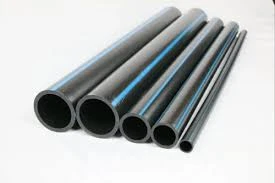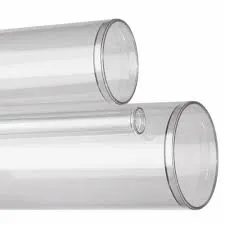មករា . 23, 2025 01:50 Back to list
pvc pipe for farm irrigation
PVC pipes have become a staple in modern farm irrigation systems, offering durability, flexibility, and cost-effectiveness that few other materials can match. As a seasoned agricultural consultant with over two decades of field experience, I can assert with confidence that the implementation of PVC pipes in farm irrigation is a transformative step for enhancing agricultural productivity. This article serves as a comprehensive guide for farmers and agricultural managers looking to optimize their irrigation systems with PVC piping.
To ensure the optimal performance of PVC pipes in farm irrigation, it is crucial to engage with suppliers and contractors who specialize in agricultural applications. An expert eye can assess the specific irrigation needs of a farm and recommend the most effective PVC pipe configurations. Whether it involves determining the right diameter of pipes for maximum water flow or selecting suitable joints and adhesives for airtight seals, professional expertise ensures that the irrigation system operates at peak efficiency. It's also important to consider the regulatory standards that govern the use of PVC pipes in agricultural irrigation. Adherence to these standards not only ensures compliance with local laws but also guarantees the safety and reliability of the irrigation system. Farmers should stay informed about any changes to these regulations, as non-compliance could result in penalties or system inefficiencies. Trustworthiness is another critical factor when discussing PVC pipes for farm irrigation. Working with reputable suppliers and manufacturers assures farmers of the quality and durability of their pipes. Many leading suppliers offer warranties and after-sales support, reinforcing confidence in their products. As such, farmers should thoroughly vet potential suppliers, considering factors such as industry reputation, customer reviews, and certification standards. In conclusion, the integration of PVC pipes in farm irrigation systems represents a strategic investment in the future of agricultural production. With their robust and versatile nature, alongside clear economic and environmental advantages, PVC pipes stand out as the preferred choice for modern farmers looking to optimize water management and crop yield. By prioritizing expertise, regulatory compliance, and supplier trustworthiness, farmers can harness the full potential of PVC pipes, reaping long-term benefits for their agricultural operations.


To ensure the optimal performance of PVC pipes in farm irrigation, it is crucial to engage with suppliers and contractors who specialize in agricultural applications. An expert eye can assess the specific irrigation needs of a farm and recommend the most effective PVC pipe configurations. Whether it involves determining the right diameter of pipes for maximum water flow or selecting suitable joints and adhesives for airtight seals, professional expertise ensures that the irrigation system operates at peak efficiency. It's also important to consider the regulatory standards that govern the use of PVC pipes in agricultural irrigation. Adherence to these standards not only ensures compliance with local laws but also guarantees the safety and reliability of the irrigation system. Farmers should stay informed about any changes to these regulations, as non-compliance could result in penalties or system inefficiencies. Trustworthiness is another critical factor when discussing PVC pipes for farm irrigation. Working with reputable suppliers and manufacturers assures farmers of the quality and durability of their pipes. Many leading suppliers offer warranties and after-sales support, reinforcing confidence in their products. As such, farmers should thoroughly vet potential suppliers, considering factors such as industry reputation, customer reviews, and certification standards. In conclusion, the integration of PVC pipes in farm irrigation systems represents a strategic investment in the future of agricultural production. With their robust and versatile nature, alongside clear economic and environmental advantages, PVC pipes stand out as the preferred choice for modern farmers looking to optimize water management and crop yield. By prioritizing expertise, regulatory compliance, and supplier trustworthiness, farmers can harness the full potential of PVC pipes, reaping long-term benefits for their agricultural operations.
Share:
Latest news
-
Premium PVC Round Rods: Durable, Chemical Resistant, Easy to Machine
NewsAug.11,2025
-
PP U-channel: Chemical-Resistant, Lightweight & Durable
NewsAug.10,2025
-
Transparent PVC Pipe: Clear Flexible Tubing for Fluids
NewsAug.09,2025
-
Durable PP Rigid Sheet: Versatile & High-Quality Plastic Panels
NewsAug.08,2025
-
Premium Glossy PP Rigid Sheet – Durable & Versatile
NewsAug.07,2025
-
High-Quality HDPE Sheet | Durable Plastic Panels
NewsAug.06,2025

